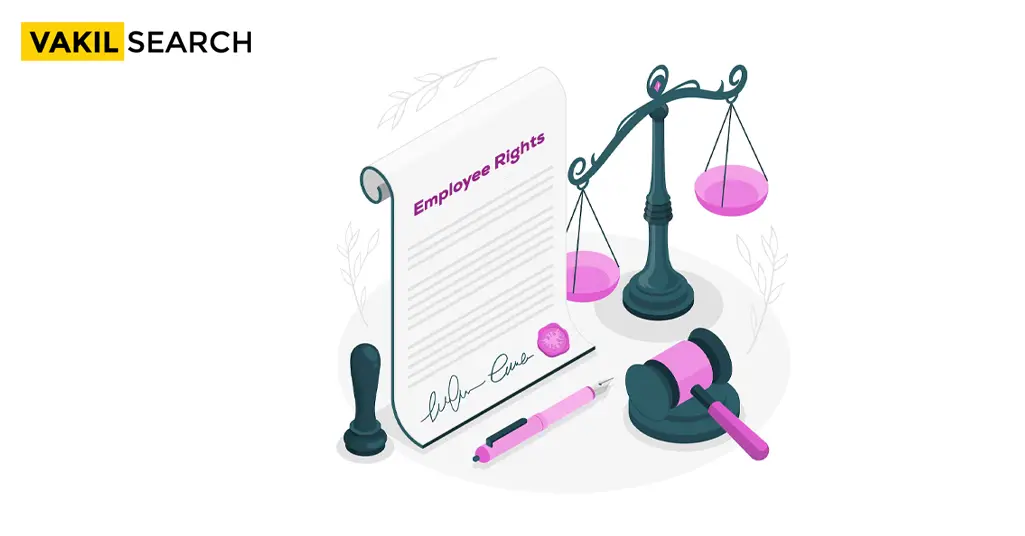Every employee should make sure that they understand their rights as an employee in India. It sounds obvious, but these six rights can help you negotiate a better deal when it comes to your salary and benefits.
India’s labor laws are one of the most complex and sensitive issues in the country. The history of these laws is long and complicated, and they have evolved over time to accommodate the changing needs of the workforce. The early years of India were dominated by manual labor, which was done by people using their own muscles. As India industrialised and became more urbanised, workers began to use machinery for tasks that were once done manually. This change led to a need for new labor laws, as workers were now performing tasks that were previously reserved for machines. The first set of labor laws in India were introduced in 1894. These laws were designed to protect factory owners from unions and strikes. They also restricted the rights of workers to form unions and bargain collectively. In 1949, India introduced its first set of modern labour laws. These laws established minimum wages, permitted unionisation, and provided benefits such as sick leave and maternity leave. They also required employers to provide training programs for their employees. Over time, India’s labor laws have been amended several times to reflect the changing needs of the workforce. Today, India has a comprehensive set of labor laws that protect both workers and employers. Below lets have a look at the 6 basic rights every employee must know.
The Right to Quit
Every employee in India has the right to quit their job at any time. This right is protected by law, and employers must provide employees with a reasonable amount of notice before they are forced to quit. If an employee decides to quit their job, they are usually entitled to receive all of their wages and benefits up to the date of the quitting event. If an employee is fired or demoted because they have exercised their right to quit, the employer may be liable for damages. Employees who are terminated without cause may also be able to file a labor suit in court. In such a case, the employee could win back lost wages and benefits, as well as compensation for emotional distress. It is important to know your rights when it comes to quitting your job in India, so that you can protect yourself from potential harm. For more details you can contact Vakilsearch today.
The Right to Speak Up
Employees have the right to speak up if they feel that their rights are being violated. This includes the right to unionise, to receive minimum wages and benefits, and to safety protections. Employees also have the right to be free from discrimination and harassment. If an employee feels that he or she has been discriminated against or harassed, he or she has the right to file a complaint with the appropriate authorities.
The Right to Undergo Medical Treatment
Every employee in India has the right to undergo medical treatment if they are injured on the job. The Indian Labor Ministry recognises two types of injuries that employees can suffer: those that are caused by the employer and those that are caused by the employee. Injuries that are caused by the employer are considered to be occupational injuries, and employees have the right to receive benefits for them. Injuries that are caused by the employee are considered to be personal injuries, and employees have the right to receive benefits for them as well. Under Indian law, an employee has a right to seek medical treatment for any injury that he or she suffers while on the job. This includes injuries that occur during training sessions, as well as during actual work hours. The employee does not have to prove that the injury was caused by the employer; they only have to show that the injury occurred while working. If an employee requires medical treatment because of an injury sustained on the job, the employer must provide appropriate medical care. If the employer fails to provide adequate medical care, the employee can sue the employer for damages.
The Right to Be Paid for Hours Worked
Every employee in India has the right to be paid for the time they spend working. Employees must be paid for all hours they work, even if they are working overtime or during a holiday. If an employer fails to pay workers for all the hours they have worked, the employees can sue the employer for unpaid wages. Employees also have the right to receive a minimum wage and benefits like health insurance. If an employer does not provide these benefits, the employees can unionise and demand that their employers provide them.
The Right to Be Protected From Discrimination at Workplace, Harassment and Hostile Environment
Every employee in India has the right to be protected from discrimination at work. This includes being able to work in an environment free from harassment and hostile environments. Workplace discrimination can take many forms, including being treated unfairly because of your race, religion, caste, sex, age, disability, or sexual orientation. It can also involve being harassed or bullied by your coworkers. If you experience discrimination at work, you have the right to file a complaint with your employer. Your employer is responsible for investigating the complaint and taking appropriate action. If you feel that you have been harassed or bullied at work, you may want to speak to a lawyer. A lawyer can help you deal with the situation and protect your rights.
The Right to Freedom of Association and Collective Bargaining
- Every employee has the right to freedom of association and collective bargaining. This means that employees have the right to unionise and negotiate collective agreements with their employers
- Employees have the right to strike if they believe that their rights are being violated. They also have the right to refuse to work if they believe that it is unsafe or unfair
- Employers must provide reasonable accommodation for employees who require a disability that limits their ability to perform their job. This includes providing modified work schedules, equipment, or facilities
- The Indian Constitution guarantees all citizens the right to life, liberty, and property. This includes the right to earn a living wage and safe working conditions.
The Right to Have Maternity Benefits
The Maternity Benefit Act of 1961 is applicable to all women working in factories, mines, plantations, and organizations with a workforce of 10 or more employees. Explore the eligibility criteria and benefits associated with maternity leave in India in the following sections.
Prerequisite for Proof of Work
As per the Maternity Benefit Act 1961, a woman must have worked with her employer for a minimum of 80 days in the 12 months leading up to the expected delivery date. Meeting this requirement allows her to avail the mandated maternity leave and any additional leave or benefits provided by her employer.
Eligibility of Motherhood in India
Maternity leave in India is available to all women who are pregnant, adopting a child, experiencing a miscarriage, or serving as surrogate or commissioning mothers. Even in cases of surrogacy, the leave period extends up to 26 weeks from the day the newborn is handed over to the adoptive parents.
Companies and Fields Covered in Maternity Leave
Maternity leave in India extends to women employees in both public and private sectors, safeguarded by the Maternity Benefit Act of 1961. This Act encompasses establishments with 10 or more employees, ensuring the provision of maternity benefits to female employees during pregnancy, childbirth, and beyond. However, self-employed women and those in workplaces with fewer than 10 employees are not covered by the Maternity Benefit Act.
|
The Maternity Benefit Act of 1961, establishes the framework for maternity leave eligibility, requirements, and benefits for women employees in India. The 2017 amendment, known as the Maternity Benefit (Amended) Act, 2017, brought positive changes by extending maternity leave from 12 to 26 weeks. This amendment reflects the evolving family structure and motherhood definitions, emphasizing the importance of supporting mothers for the well-being of both the family and the workplace. A well-supported mother is an asset to her organization, contributing effectively to projects, deadlines, and work commitments. |
The Right to have Gratuity and Provident Fund
Employees in India have the right to receive gratuity, a form of monetary benefit provided by employers in recognition of their long-term service. The Payment of Gratuity Act of 1972, mandates that gratuity applies to employees who have completed at least five years of continuous service with the same employer. This benefit is extended upon retirement, resignation, or in the event of the employee’s demise.
Additionally, every employee in India is entitled to the Provident Fund, which is a mandatory savings scheme. Both the employer and the employee contribute a portion of the salary to the PF account. The Employees’ Provident Fund (EPF) Act, 1952, governs this scheme, ensuring financial security for employees during their post-employment years.
Conclusion
As an employee, it’s important that you are aware of your basic rights and understand what is required of you in order to protect them. By being familiar with your rights as an employee, you can ensure that you are taking all necessary steps to protect yourself and hold your employer accountable. For more information, contact Vakilsearch today.
FAQs
What are the fundamental rights guaranteed to employees in the workplace?
Fundamental rights guaranteed to employees in the workplace in India include the right to equality, right against discrimination, right to freedom of speech and expression, right to work, and the right to constitutional remedies.
Can an employer terminate an employee without providing any reason?
In India, an employer can terminate an employee without providing a reason only if the employment is at will or if the termination is in accordance with the terms of the employment contract. Otherwise, the employer is required to provide a valid reason for the termination.
Do part-time employees have the same rights as full-time employees?
In India, part-time employees are entitled to many of the same rights as full-time employees, including the right to minimum wage, social security benefits, and protection against discrimination and harassment.
What recourse do employees have in case of workplace discrimination or harassment?
In India, employees have recourse to the Internal Complaints Committee (ICC) established under the Sexual Harassment of Women at Workplace (Prevention, Prohibition and Redressal) Act, 2013, and the courts for workplace discrimination or harassment.
Are there specific rights related to breaks, lunchtime, and working hours for employees?
In India, the specific rights related to breaks, lunchtime, and working hours for employees are governed by the Factories Act of 1948, and the Shops and Establishments Act of the respective states. These laws provide for rest intervals, meal breaks and even regulate the working hours of employees
Read more,










